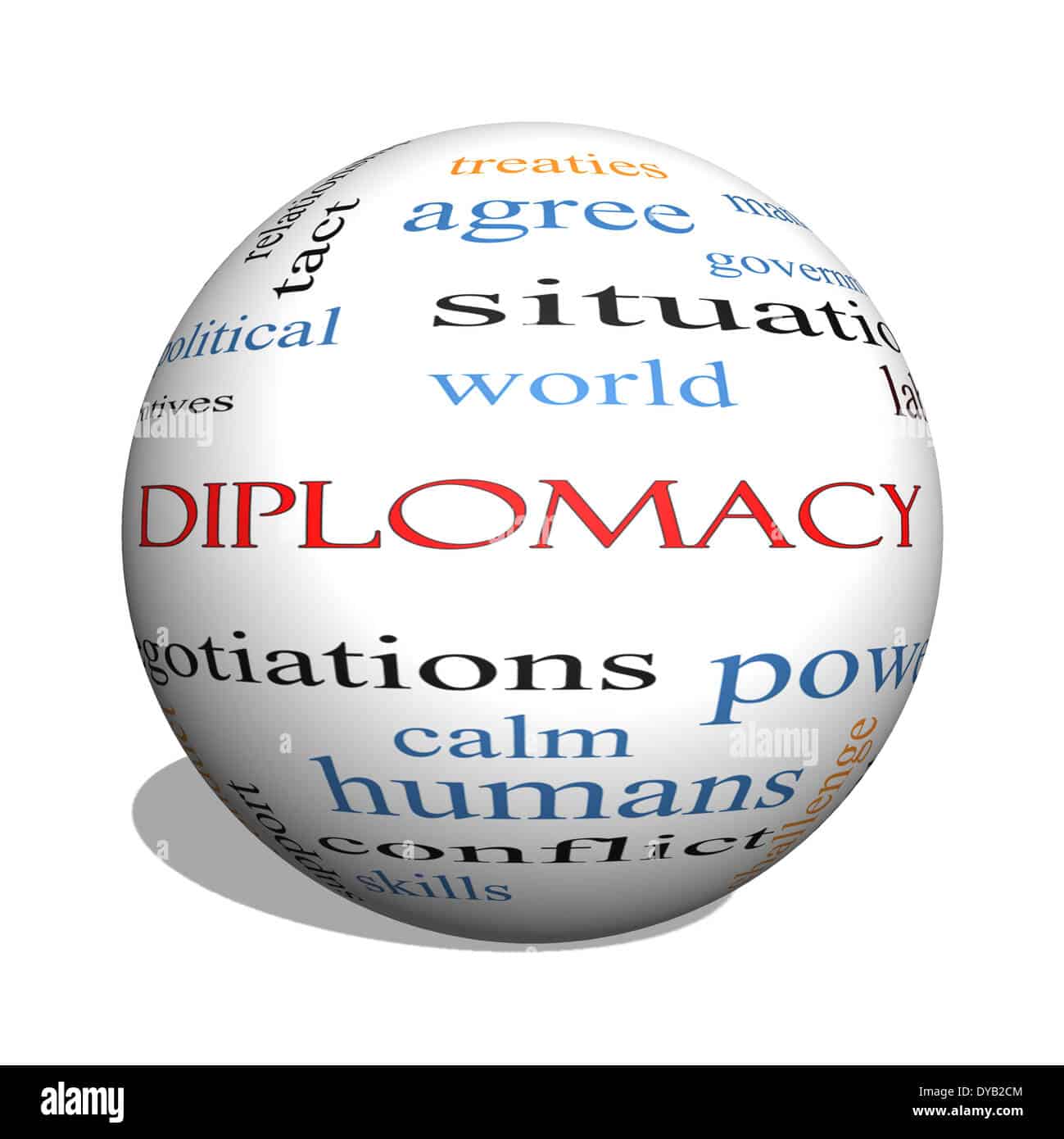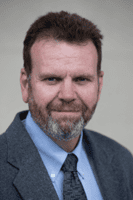STATE OF THE WORLD: How to Make Sense of our Political and Commerce Situation
For over forty years, Lexington Rotarians have had the good fortune to look at the state of the world as seen through the eyes of the experts at the University of Kentucky’s Patterson School of Diplomacy and International Commerce (Patterson School). Returning to the podium to defend his predictions from last year – and to offer new ones – is Dr. Robert Farley, Senior Lecturer at the Patterson School. Dr. Farley has taught security and diplomacy courses at the Patterson School since 2005. He also held an academic position with the Department of National Security Strategy, United States Army War College from August 2018 to July 2019. He received his BS from the University of Oregon in 1997, and his Ph.D. from the University of Washington in 2004. Dr. Farley is the author of Grounded: The Case for Abolishing the United States Air Force (University Press of Kentucky, 2014), The Battleship Book (Wildside, 2016), and Patents for Power: Intellectual Property Law and the Diffusion of Military Technology (University of Chicago, 2020). He has contributed extensively to a number of journals and magazines, including the National Interest, The Diplomat: APAC, World Politics Review, and The American Prospect. Dr. Farley is also a founder and senior editor of Lawyers, Guns and Money, a self-described “progressive politics, academia, and culture blog”. Last year Dr. Farley introduced us to the concept of the “polycrisis”, a term used by The World Economic Forum’s Global Risks Report 2023 to explain how “present and future risks can also interact with each other to form a polycrisis’ – a cluster of related global risks with compounding effects, such that the overall impact exceeds the sum of each part”.
The Patterson School has an interesting history and deep ties to the Rotary Club of Lexington. It was launched in 1959 in fulfillment of the vision of UK’s first president, Dr. James Kennedy Patterson. Upon his death in 1922, almost his entire estate was placed in a trust to be used for the creation of a college of diplomacy to be named for his deceased son, William Andrew Patterson. Thirty-seven years later the trust had grown sufficiently large that, coupled with funding from the Commonwealth of Kentucky, the Patterson School became a reality. The late Vince Davis, a long-time Rotarian, served as Director of the Patterson School for twenty-one years, starting in 1972.
Grounded: The Case for Abolishing the United States Air Force (University Press of Kentucky, 2014) Battleship Book (Wildside, 2016)Patents for Power: Intellectual Property Law and the Diffusion of Military Technology (University of Chicago, 2020). National Interest, the Diplomat: APAC, World Politics Review, and the American Prospect.
ROTARY IN REVIEW
ROBERT FARLEY ON THE STATE OF THE WORLD
Dr. Robert Farley, Senior Lecturer at the University of Kentucky’s Patterson School of Diplomacy and International Commerce, presented his annual “State of the World” to our Club at our last meeting. In his introductory remarks he noted that his slides from 2024 have not changed much for 2025 and that the audience should not take lightly the events that occur on the global stage because Kentucky is dependent on the international system.
Dr. Farley first referenced the Russia – Ukraine conflict, now in its 4th year. President Trump’s claim that he would end that war in one day notwithstanding, a more reasonable hope was that it would be short lived. Russia has continued to be the impediment to the war ceasing and the effects of a “drone driven” war have made it possible to continue with their strikes on Ukraine.
Territory gains by Russia are slow, their economy is struggling and will probably enter a recession this year. Russia is also struggling with high interest rates and high unemployment. Dr. Farley was recently in Kyiv and stated that the air raid sirens run all day long. He noted that Trump’s efforts have yielded nothing to date.
He next discussed the Middle East in the context of the October 7th attacks by Hamas and emphasized mainly what we do not know, such as the extent of damage to Iran’s nuclear plants. We don’t know if Iran wants to develop nuclear weapons, and we don’t know if Israel will attack Iran to prevent it from doing so. If Israel were to attack Iran, they will need our help. Hezbollah and Iran have been damaged, but they can be reconstituted. The Houthis are quiet at the moment. Finally, we don’t know the damage to Israel’s reputation from this war. Gaza is “horrific” and reminiscent of the Syrian conflict.
Farley believes the biggest foreign affairs conundrum is our long-term power competition with China. The U.S. has been in an overwhelmingly powerful position but that is shrinking. Unlike previous “enemies”, China is a massive trading partner of ours. Our universities train huge numbers of Chinese students who remain here as U.S. citizens. The conundrum? Do we hurt the U.S. in order to damage China? The sticking point is Taiwan, a country that is independent and manufactures most of the world’s computer chips. China’s ability to take over Taiwan grows daily. A war involving China, Taiwan, and the U.S. would be a war unlike any we have ever seen.
Dr. Farley then moved on to what he called Economic Statecraft. He noted that tariffs are not new but that the tariffs during Trump 2.0 have been confusing and chaotic. He acknowledged that there was a new deal with Japan, but we should be aware that tariffs have unintended and unexpected consequences. As a result, Japan could decide to no longer make cars in the U.S. That would have huge consequences to Kentucky.
Another potential concern for Kentucky is the highly complex nature of the immigration structure under Trump. Kentucky is mainly an agriculture state with a workforce that could be impacted through immigration enforcement.
Farley also noted a local impact of DOGE cuts to USAID: loss of jobs by many UK alums of The Patterson School. Because most of the funds that were scheduled to be spent were to be spent in the U.S., the financial impact could be significant. Many other international organizations are also under threat.
On curbing North Korea and its burgeoning ties to Russia, Farley thinks our best hope might be China, since they do not want North Korea to become more dependent on Russia. Also, the U.S. should work to become better partners with South Korea and Japan.
Lastly, Farley touched on universities’ conflict with the Trump administration over antisemitism. The question about protests has become are you criticizing Israel or are you criticizing Jews. It is not uncommon now to see police cars present at houses of worship. He believes that imposing fines will merely move the protests off campus or lead to direct attacks on the universities and not solve the problem.
There was much to take in. Readers are encouraged to visit YouTube to hear Dr. Farley’s entire remarks.
Jim Richardson
Recent Updates
Rotary Club of Lexington Announces 15th Annual Dancing with the Lexington Stars
Feb. 26 – Darlene Thomas, Executive Director, GreenHouse17
Feb. 12 – Dr. Brent Seales, On Perseverance: Virtually Opening the Herculaneum Scrolls
Rotary Leadership Institute Trains Tomorrow’s Leaders
Black History Month: A Century of Black History Commemorations


